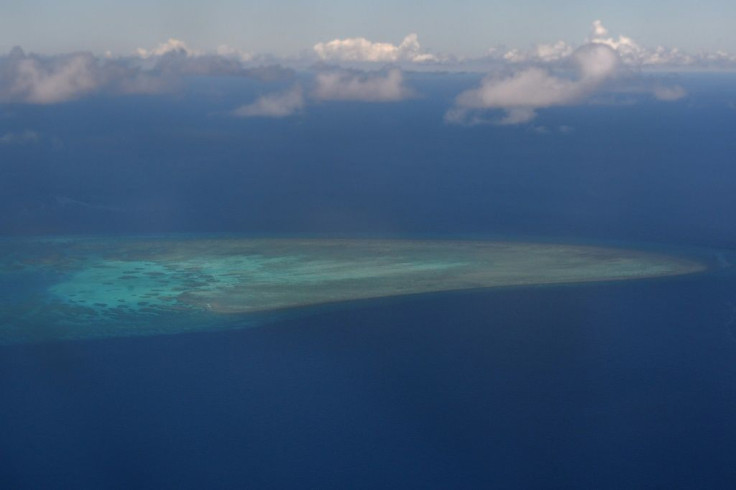South China Sea Land Grab – A Brilliant Move?
China's recent move to reclaim reefs in the South China Sea is brilliant, as the U.S. is distracted by other issues like the war in Ukraine, inflation and Taiwan.
That's according to Paul Bracken, professor of management and political science at Yale School of Management.
He thinks Xi Jinping's strategy adheres to Sun Tzu and "The Art of War": Take small moves to outflank the enemy, which he will see as threatening once it's too late. "The Chinese have been playing the game 10 times longer than the United States has been, so they're highly experienced, to say the least," he told International Business Times.
Bracken believes Xi is building a de facto Monroe Doctrine for control of the South China Sea by asserting control over more islands and reclaiming reefs. "It's like the U.S. Monroe Doctrine of 1823, which told European colonial nations to stay out of building any new outposts in the western hemisphere or else they would be driven out. While the Monroe Doctrine is 200 years old next year (in 2023), Sun Tzu wrote it over 2,000 years ago," he explained.
Moreover, he thinks that Beijing's move is more than just symbolic. It will help China achieve an overwhelming military superiority in the South China Sea and win a future conflict. The U.S. won the Cuban missile crisis because the confrontation occurred in an area where Washington had overwhelming military superiority — the Caribbean.
"There was no way the United States could lose a showdown in the Caribbean because of a large military presence in the area," Bracken said. "Xi wants this for the South China Sea with the roles reversed, i.e., to have such an overwhelming Chinese advantage in the South China Sea that the U.S. knows it would lose in any confrontation like Moscow did in the Caribbean in 1962."
Furthermore, Beijing thinks Washington is unlikely to start a big crisis over some nameless reef that's far away. "They are seen as worthless pecks of sand, certainly not worth starting a big diplomatic or military confrontation while Ukraine fights the Russian Army," Bracken added.
Irina Tsukerman, president of Scarab Rising, Inc., finds China's South China Sea land grabs predictable and part and parcel of its strategy. "It is based on cold calculations and analysis of the geopolitical strategy and foreign policy by its adversary," she told IBT. "China tends to be more aggressive when it senses weakness and more conscious when there is a reason to expect scrutiny and pushback."
But she thinks the move is about something other than brilliant or foolish. It's just a normal reaction in the global power game.
Tsukerman brings another factor into the discussion: the need for a coherent and consistent U.S. foreign policy between administrations, with one administration undoing the previous administration's policies.
"Therefore, the calculation by Xi and others is that the newest step will elicit nothing more than a statement from the State Department, and possibly minor escalations such as increased coordinated military patrols nearby," she explained. "But the U.S. and other Western naval forces are not ubiquitous and cannot roam near every area China is encroaching upon, given the numbers currently allocated to that task."
Brandon Tseng, a former Navy SEAL and surface warfare officer with deployments to the Pacific theater and current president and co-founder of Shield AI, sees a significant danger for American carrier battle groups from China's activities in the South China Sea.
He thinks that the United States and its allies need to act more quickly and boldly to establish a credible deterrence to conflict in the South China Sea. "The worse case is we end up scrambling just like we did after Russia invaded Ukraine," he told IBT. "As the saying goes, an ounce of prevention is worth a pound of cure. So we need to work faster than ever at deploying capabilities that will give Chinese generals countless dilemmas and nightmares. For deterrence to succeed, the other side must realize the cost of war is too great."

© Copyright IBTimes 2025. All rights reserved.





















